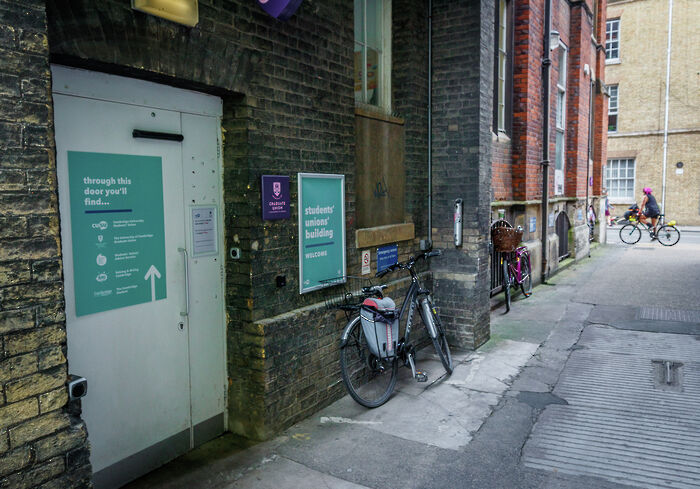CUSU should not have had to assert its stance on Remembrance Day
The motion passed at this week’s meeting of CUSU Council highlighted the impact the events of the past two weeks have had on our University

Two weeks after a motion put before CUSU Council to commemorate British war dead was amended to propose the commemoration of all those whose lives have been affected by war, CUSU’s executive team proposed a new motion last week providing “clarity” on their Remembrance Day stance, which was then passed in Council on Monday.
There are many debates to be had - and many have been had – as to the original motion presented to Council two weeks ago. It is understandable how the wording of some parts of it, such as ‘examples of inspiration from instances of human fortitude and gallantry’ could be perceived as a ‘glorification and valorisation’ of war. However, it is equally undoubtable that ‘immense personal sacrifices’ were made by members of the British armed forces, regardless of how one views the causes that these sacrifices served. Wearing poppies generally shouldn’t be considered as being too controversial: their sale contributes a major part of the British Legion’s income, a charity which helps veterans and their families.
“For all the national media derision of ‘safe spaces’, these last two weeks have demonstrated conclusively that for those who dare to hold the ‘wrong’ opinion, these do not exist”
Personally, seeing rows of names of the Fallen fills me with sadness and regret, not an admiration of war. To commemorate and respect those who paid the ultimate price does not necessarily equate to endorsing the causes of their death. I equally understand the desire to remember not just veterans, but civilian casualties of war too. The commemoration of one does not have to come at the expense of the other.
But many may question whether CUSU Council is the right forum in which to debate these issues.
Whatever your opinion of Remembrance Day, your student union’s stance on it probably isn’t a deciding factor in your personal beliefs. There are topics where I care what my student union’s stance on them is – on tuition fees, on staff strikes, on rent campaigns. But Remembrance Day is not one of them. I understand that how we remember those who die in wars matters, and it should definitely be discussed in public forums. However, I’d question whether CUSU council is the best place for this. Those working within CUSU and its campaigns must have originally thought along similar lines: regardless of their personal opinions, they at first resisted issuing a statement in their professional capacity.
We would do well to remember that the recent decision of CUSU to clarify its stance did not occur in a vacuum; it happened after two weeks of intense national media scrutiny which resulted in death threats being made against multiple individuals involved in the debate surrounding the original motion. I definitely do not want to add to mounting criticism both within and outside the University. However, one must question to what extent this new motion was written due to a strength of feeling from council members and student groups, and how much influence people and factors external to Cambridge had.
For all the national media derision of ‘safe spaces’, these last two weeks have demonstrated conclusively that for those who dare to hold the ‘wrong’ opinion, these do not exist. While one can disagree with the content of the amendment to the original motion, this does not change the fact that the treatment of CUSU members, by both anonymous trolls online and prominent media figures, was deplorable. The way the amendment was reported on nationally sensationalised the debate and exploited the tired stereotype of the ‘snowflake’ student left at the expense of the wellbeing of members of our University, and I completely understand why CUSU, in the midst of what can only be described as a media storm, felt the need to clarify their stance on Remembrance Day.
The new motion still overwhelmingly focuses on the right of students to feel free to celebrate Remembrance Day as they see fit: Point four of ‘CUSU notes’ states that ‘the observation of Remembrance Day should be a matter of personal choice.’ This should not be too controversial: how one chooses to remember the victims of war speaks to many deeply held political opinions. That CUSU felt the need to reiterate this basic policy shows the extent to which national reporting has affected the University landscape.
Remembrance Day will always incite strong feelings - it is after all, an incredibly emotive topic. The individuals occupying executive positions within CUSU of course have political views, and so CUSU will never be completely apolitical, but this is not the sort of topic that these individuals expect to have to discuss in a professional capacity. CUSU does not normally have to clarify its stance on more national issues, and nor should it feel like it has to through media pressure.
No one is, or should be, forced to wear a poppy, and no one should be threatened for their decision either way. Remembrance is nothing if not personal, and CUSU is right to allow students to decide for themselves how to commemorate, even if the motion which clarifies this came about in a painful way. But that was never what the media really cared about anyway.
 News / Downing investigates ‘mysterious’ underground burial vault 29 December 2025
News / Downing investigates ‘mysterious’ underground burial vault 29 December 2025 News / Unions protest handling of redundancies at Epidemiology Unit30 December 2025
News / Unions protest handling of redundancies at Epidemiology Unit30 December 2025 Lifestyle / Ask Auntie Alice29 December 2025
Lifestyle / Ask Auntie Alice29 December 2025 Features / ‘Treated like we’re incompetent’: ents officers on college micromanagement30 December 2025
Features / ‘Treated like we’re incompetent’: ents officers on college micromanagement30 December 2025 Science / Astronomical events to look out for over the break29 December 2025
Science / Astronomical events to look out for over the break29 December 2025










